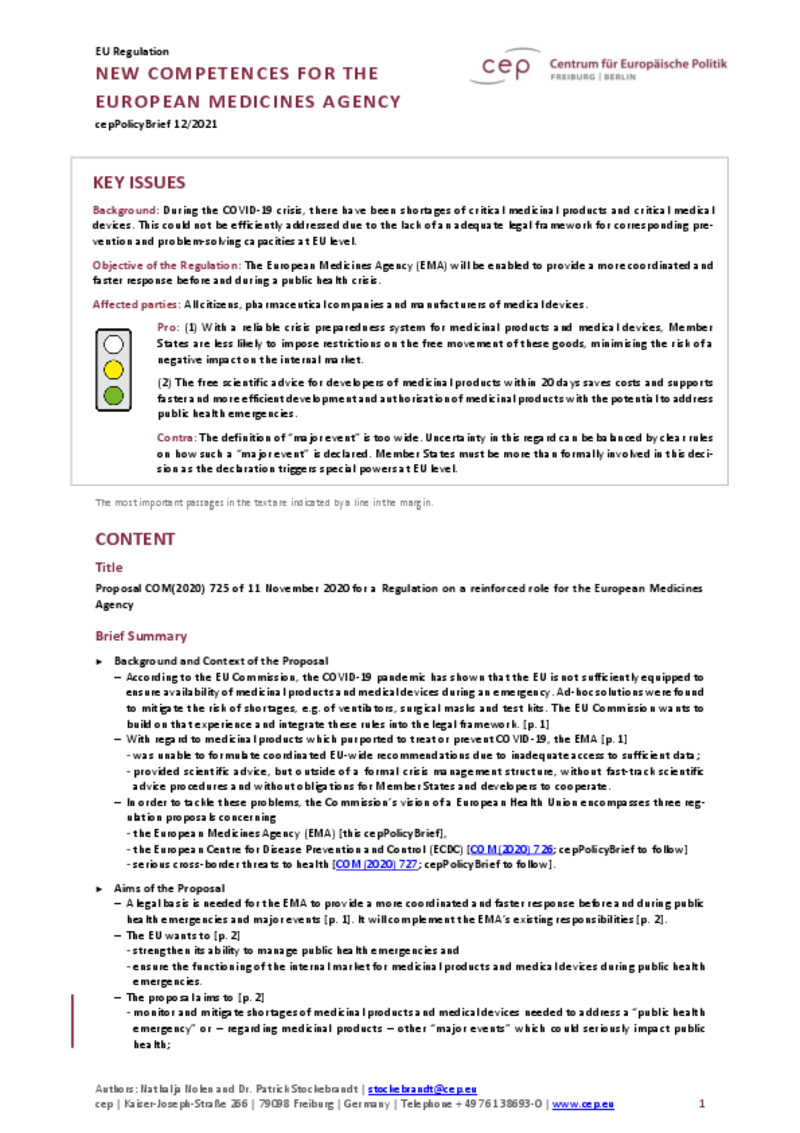
Consumer & Health
New Competences for the European Medicine Agency (cepPolicyBrief COM2020_725)
cepPolicyBrief
"With a reliable EU crisis preparedness system, Member States are less likely to impose restrictions on the free movement of medicinal products and medical devices - in this respect, strengthening the EMA's competences is warranted. However, this must not lead to overregulation. Especially the planned obligation to submit data on critical medicines causes problems for many companies. For example, data on alternative medicinal products are sometimes difficult to obtain," warns cep health expert Patrick Stockebrandt, who wrote the cepPolicyBrief with co-author Nathalja Nolen.
In Nolen's view, the EU proposal, which is to be welcomed in principle, remains too vague at crucial points. "The term 'major event' as the basis for the entry into force of the new EMA competences in the event of a crisis is too broad. It can mean many things," the cep expert criticises.
One of the issues currently being discussed at the Conference on the Future of Europe is how to create the conditions for a closer Health Union. This ought to give Brussels more competences vis-à-vis the Member States in the health sector. "The new competences of the EMA envisaged here reflect what is still possible under the current Treaties. But the discussion about further EU competences as part of a 'real' Health Union is gaining momentum again," Stockebrandt explains.
Download PDF
| New Competences for the European Medicine Agency (cepPolicyBrief COM2020_725) (publ. 06.22.2021) | 232 KB | Download | |
 | |||


